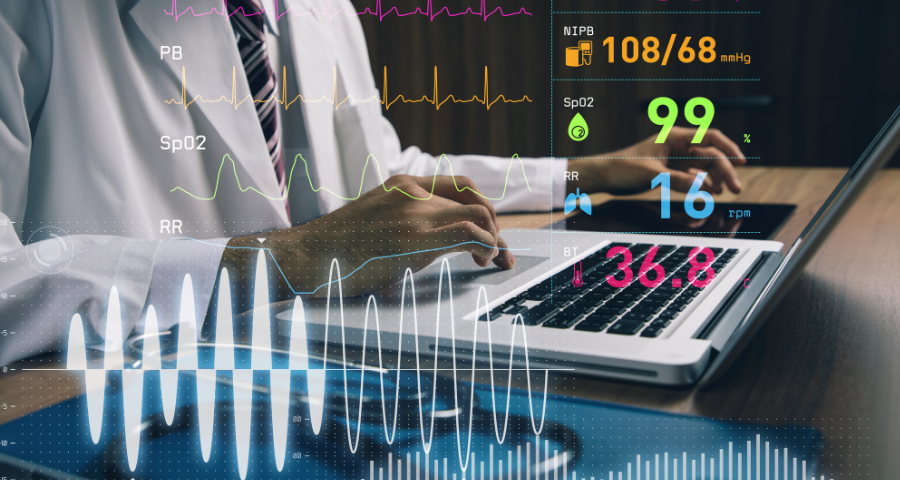Did you know that the medical device industry will reach over $100 million in value by 2027? Electrical connectors for sensors are some of the most essential components that are used in medical applications.
However, not everybody understands what they should about sensor technology. The same can be said about electrical connectors. Let's take a look at what you need to know.

What Are Medical Sensors?
Medical sensors are designed to measure, observe, and detect a variety of different parameters in the medical field. These include temperature, pressure, flow rate, force, light intensity, and more.
Sensors can be used for diagnostics or monitoring purposes in order to ensure that the patient is properly taken care of and at optimal health levels. Without them, we would not be able to achieve the same level of medical care.
Some people also wouldn't be able to get the treatment that they need. For instance, those who have diabetes wouldn't be able to monitor their glucose levels.
What Are Electrical Connectors?
Electrical connectors are interfaces that allow a connection between two components. They are typically used in conjunction with sensors. They will ensure proper communication and data transfer between the sensor and its control system.
Electrical connectors can include a variety of connector pin shapes: round, square, rectangular, or even hollow. These pins establish an electrical connection when they come into contact with mated parts.
What Are the Different Types of Electrical Connectors?
Push-pull connectors, waterproof connectors, board-to-cable connectors, and circular connectors are the most common.
Each type has distinct features that can better suit a particular application.
For example, push-pull connectors provide a quick connection and disconnection process. This makes them great for use in disposable medical devices.
Waterproof connectors, on the other hand, are ideal for use in wet environments or locations where there is a risk of exposure to water.
It's also worth noting that it's possible to create custom connectors. This will help ensure that you use a component that helps you meet your needs.
Many may have some hesitation when considering a custom connector, but finding the right partner to help with your manufacturing process is a great starting point for getting a solid, cost-effective solution for your assembly.
Here are some additional reasons why you should consider custom connectors:
- If you're working on a custom controller or an output display monitor
- If your connector needs to plug into a standard high-volume connector (like TE, Molex, or Amphenol)
- If there is no board mount option for the connector
- Or if there is not enough space for the standard connector to work in your assembly
How Are Electrical Connectors Used in Medical Applications?
Medical sensors and connectors go hand-in-hand.
Connectors provide a safe and secure connection between the sensor and its control system. Doing so allows for reliable data transmission. The right connector can also help reduce noise interference. It can also maintain a high level of performance in sensitive medical settings.
Additionally, many connectors feature safety measures, such as hermetic seals or other protective layers. This goes a long way when it comes to ensuring the device is safe and secure for use in medical settings.
What Kind of Sensors Are Used in Medical Technology?
Medical sensors are used to measure a variety of different parameters in medical settings.
These can range from temperature, force, and pressure. They also include sound waves and light intensity. Additionally, there are also biosensors that are designed to detect the presence of specific biological molecules or elements in the body. These include glucose level sensors or pH sensors which help to monitor a patient’s health.
What Type of Parts Power These Sensors?
Most sensors use batteries as a power source.
This allows them to be more portable than other sensors that are part of a large electrical system that is either plugged in or hard-wired into the electric source.
It is important to ensure that the correct connector is used when connecting these sensors to a power source. This can help ensure optimal performance and reduce the risk of damage or malfunction.
What Should You Look For When Choosing Electrical Connectors For Your Medical Device?
You'll want to make sure that they meet the design and performance requirements of your application. Make sure the connectors are rated for medical use. They will need to be able to handle any environmental conditions they may encounter while in use.
Make sure that the connectors are compatible with the manufacturer's specifications. Check whether or not it has all of the necessary certifications and approvals. Finally, consider the cost of the connectors, as you want to make sure that it is within your budget.
What Are Common Mistakes That People Make?
One of the most common mistakes people make when dealing with electrical connectors for medical devices is failing to check compatibility. Make sure that the connectors you choose are compatible with your control system and any existing medical equipment in order to ensure proper data transmission and a secure connection.
Additionally, avoid using cables or connectors that are not rated for medical use as they can cause issues with the system.
Finally, be sure to check for any certification or approval labels before using the connectors. Otherwise, you may end up in a situation where the device fails to meet safety or performance standards.
In some cases, this can be difficult or impossible to recover from. It could also place someone's health in jeopardy.
Understanding Medical Sensors Is Easier Than It Seems
At times, understanding medical sensors can seem overwhelming. The above guidelines will help ensure that you avoid problems you may have otherwise dealt with.
Looking for more information about how Bead Electronics can help support your next custom assembly? Reach out to us today to see how we can help.





